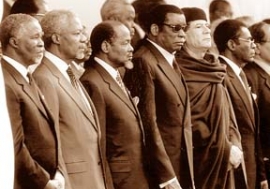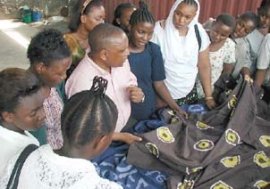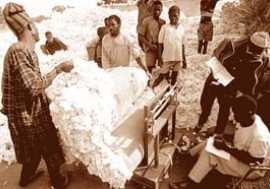A better environment for integration?
From Africa Recovery, Vol.16 #2-3 (September 2002), page 12
During the first decade and a half after most African countries gained their independence in the early 1960s, more than a 100 different regional organizations were created on the continent, attesting to a strong desire for
pan-African cooperation and unity. But the failure of many of these institutions to achieve real results has bred widespread skepticism. Will African leaders be any more diligent in implementing their commitments to regional integration in the future? Will Africa's people gain any more benefits than they have so far?
Proponents of regional integration acknowledge the shortfalls of the past. But they also point out that some of the conditions that previously impeded progress have since improved, if only partially. Under these new conditions, they argue, the prospects for integration should be somewhat brighter than they were before. The changes have been diverse:
War and conflict: During the first decades after independence, many African countries were caught up in the rivalries of the Cold War and preoccupied with liberating those territories still under colonial or white minority rule (mainly in Southern Africa). These major political confrontations made economic cooperation extremely difficult. The Cold War has now passed, and with the end of apartheid in 1994, much of Southern Africa has been at peace. However, many local wars have continued to erupt in various parts of the continent, further obstructing moves toward regional unity.
Political rule: Until the 1990s, most African countries were under military or one-party rule. With no obligation to give any public accounting, it was easy for rulers to make grand promises at regional conferences and then do nothing to implement them. Now, with just a few exceptions, African governments are elected. Although democracy remains fragile, civil society organizations are in a much stronger position to demand that their leaders keep their promises.
Economic performance: Most of Africa was stricken by a severe economic crisis throughout much of the 1970s and 1980s. Many governments were overwhelmed by the struggle for survival and could devote few resources towards regional infrastructure or other projects favouring integration. Since the mid-1990s, however, an increasing number of African countries have benefitted from renewed economic growth, providing greater scope for new initiatives. This recovery has been uneven, however, and economic performance can fluctuate unexpectedly from one year to the next, making it harder for African countries to coordinate policies with their neighbours.
Policy frameworks: Struggling with crises, African governments could not implement their 1980 Lagos Plan of Action, which strongly emphasized regional initiatives. Instead, they were compelled to adopt the structural adjustment programmes promoted by the World Bank, International Monetary Fund and major donor countries. These programmes, focusing heavily on liberalization and market mechanisms, were almost exclusively national in scope. They obliged each African government to negotiate separately with its external financing institutions, and liberalization was implemented without regard to regional considerations. Donors, meanwhile, were very reluctant to fund regional cooperation projects. Although structural adjustment remains the underlying framework for most national economic programmes in Africa, the international financial institutions now appear more open to regional initiatives than they were in the past.





















